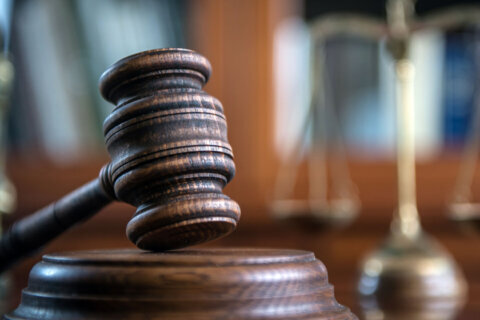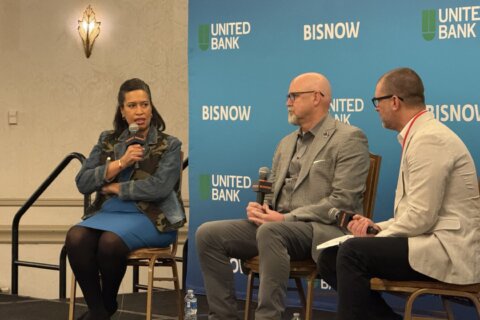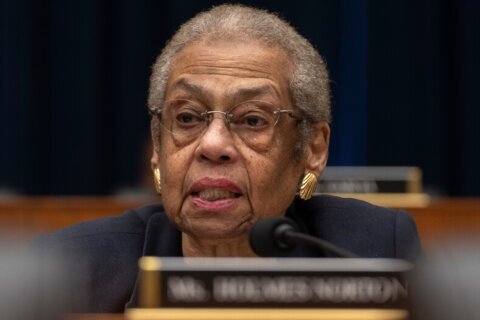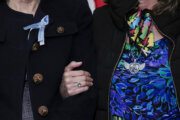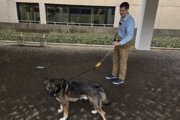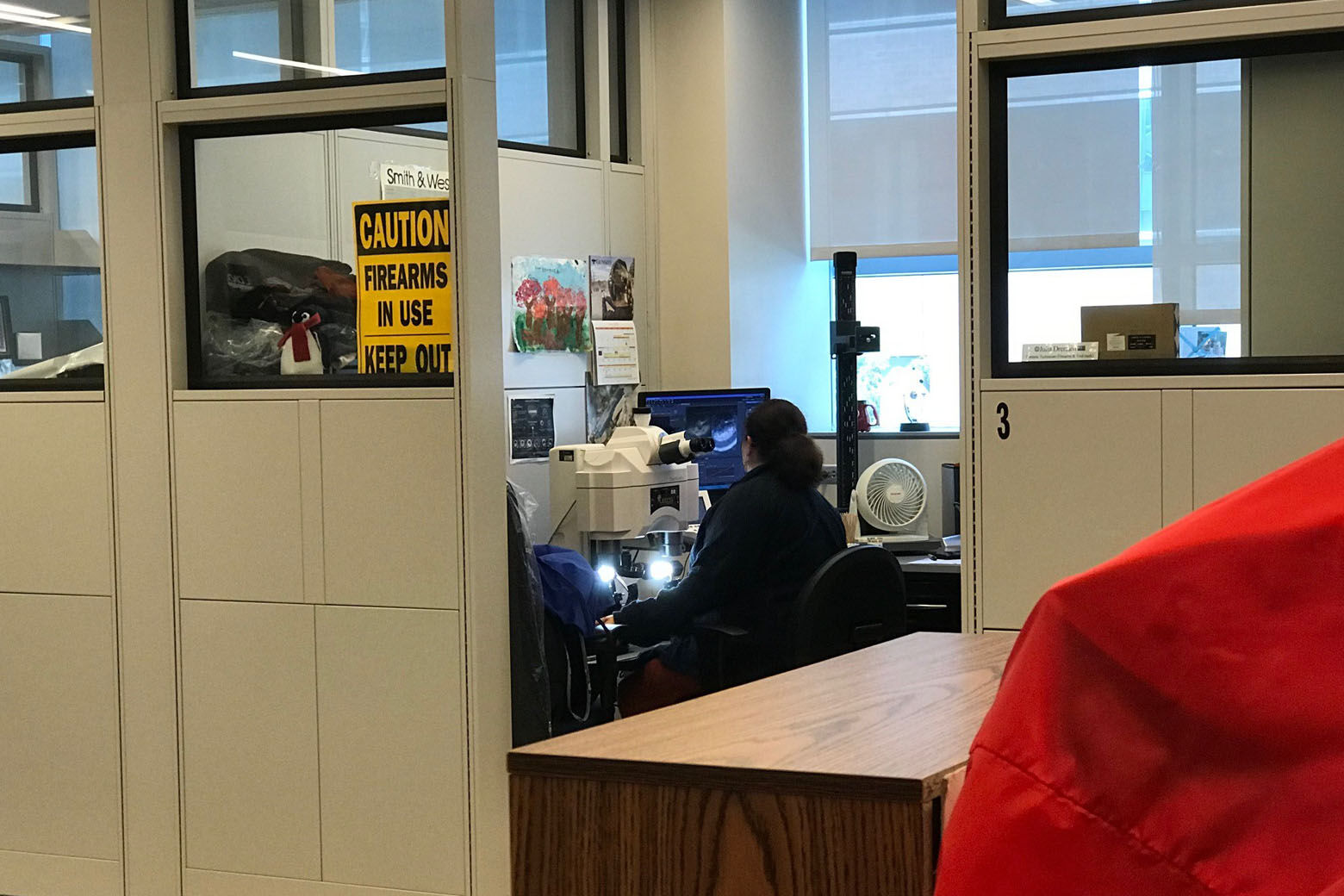
D.C. Mayor Muriel Bowser said Monday she wants concerns about the operations of the District’s Department of Forensic Sciences “fully investigated” after a national oversight board temporarily suspended the lab’s accreditation to perform forensic testing.
At the same time, Bowser said her administration would be “fully defending” the lab’s practices to the ANSI National Accreditation Board (ANAB), which inspects the operations of forensic labs across the country.
The suspension of the lab’s accreditation has brought to a halt all of the lab’s forensic casework, including the processing of DNA, ballistics and fingerprint evidence.
The move came less than two weeks after a team of experts hired by federal prosecutors and the D.C. attorney general’s office filed a report in D.C. Superior Court that raised “very serious” concerns about lab management, including an accusation that examiners felt pressured to change results and that findings were misrepresented to ANAB. That report came amid a long-running dispute between the lab and federal prosecutors over the lab’s analysis of firearms evidence.
The D.C. Office of the Inspector General opened a criminal investigation into the allegations in December. The status of that investigation is unclear.
Bowser made her comments during a news conference Monday, weighing in on the controversy for the first time.
“We are committed in our city to an independent lab,” Bowser said. “That’s a lab that’s independent of the Metropolitan Police Department and independent from the U.S. Attorney’s Office. And we’re proud of the lab that we have built at DFS. … Having said that, any questions about the processes at our lab, we want fully investigated and we will fully participate in that investigation. But we are also going to spend the next 30 days fully defending our practices at that lab with our accreditation body.”
The city said the suspension would last for 30 days.
In addition to the forensic sciences lab, DFS also houses the District’s Public Health Laboratory, which has been at the forefront of the District’s efforts responding to the coronavirus pandemic. The forensic accreditation does not cover the activities of the health lab.
The Department of Forensic Sciences is run by Jenifer Smith, a retired FBI special agent and DNA expert who was appointed by Bowser to lead the lab in July 2015.
With evidence processing halted, the city plans to rely on outside contractors for help covering the D.C. lab’s casework.
Speaking during the news conference Monday, Bowser did not address the cost to the city of hiring contractors. She said the city has used private labs before and has a long-standing contract for DNA processing resources. She also said the city would likely rely on federal agencies for help processing evidence.
Later Monday, the office of Chris Geldart, the deputy mayor for public safety and justice, told WTOP that the Bureau of Alcohol, Tobacco, Firearms and Explosives would take over the lab’s ballistics testing. In 2015, the same accrediting board found deficient practices in the lab’s DNA unit, which led to the lab temporarily halting all DNA casework for about nine months and the resignation of the lab’s former director. At that time, ATF also covered much of the lab’s DNA casework.
Council pledges oversight hearing
D.C. Council Chairman Phil Mendelson called the loss of the lab’s accreditation “very concerning.”
He said Council Member Charles Allen, who chairs the council’s Public Safety committee, planned to hold an oversight hearing later this week or next week, “so it’s clear to the council — and, through the hearing process, to the public — what’s going on and what can be done to fix it.”
Mendelson added, “As I understand it, it’s not so much the science as it is the management that’s at issue here. And I think that’s important to say … because we have to be able to rely on the science.”
The suspension of a lab’s accreditation is an uncommon occurrence, and the specific reason for the suspension has not been disclosed.
Over the weekend, a DFS spokesman did not respond to a request for comment from the DFS director. A statement provided over the weekend from the deputy mayor for public safety and justice also did not provide the reason for the suspension but said that DFS would appeal the decision and challenge any possible attempt to withdraw accreditation.
In an email to WTOP Monday evening, Pamela Sale, vice president of forensics for ANAB, said the organization could not provide further details about the reason for the suspension.
“In light of confidentiality restrictions with our clients, including DFS, we cannot provide any specifics regarding the basis for ANAB’s decision to suspend DFS’s accreditation,” the email stated. “We ask that you pose these questions to DFS and review ANAB’s public information regarding the process for appealing accreditation decisions such as ANAB’s decision to suspend DFS’s accreditation.”
According to the steps outlined on the ANAB website, DFS has 30 days to appeal the suspension. A panel of ANAB officials from the group’s various accreditation committees will then investigate and hold a private hearing where DFS can make its case. The ANAB officials will then deliberate in private and reach a majority decision. If the panel votes to uphold the appeal, the accreditation decision is remanded “for further consideration.” If the panel does not uphold the appeal, the decision on suspension stands.
While the city has said the suspension would last only for 30 days, ANAB’s website states: “The appealed accreditation decision shall remain effective pending the conclusion of the appeal process.”
Long-running dispute
For well more than a year, prosecutors and the lab have been locked in an acrimonious legal battle over the handling of firearms evidence.
Federal prosecutors and the D.C. attorney general’s office retained a team of three experts last spring to look into the lab’s firearms unit following the discovery of a series of errors that led to the lab erroneously linking cartridge casings from two 2015 killings to the same gun.
In that case, prosecutors allege that once the lab was made aware of the error, examiners who were assigned to take another look at the evidence were pressured into issuing a finding of “inconclusive” even though an initial review by a lab supervisor had concluded the shell casings were not fired by the same gun.
In an interview with WTOP last fall, Smith, the DFS director, defended the lab, stressing its independence from federal prosecutors as one of the few crime labs in the U.S. not formally affiliated with law enforcement. She also pointed to the lab’s accredited status.
In the interview, Smith said the broader dispute with prosecutors over the firearms unit’s casework stemmed from differences in interpretation that are common in some fields of forensic science. She also suggested the lab’s “inconclusive” finding indicated its examiners were more conservative in reaching conclusions about evidence than prosecutors preferred.
However, the timeline that Smith laid out for how the lab responded to the error conflicts with what prosecutors allege in court documents. In the interview, Smith never disclosed that the lab supervisor who later issued a finding of “inconclusive” had, at first, concluded the casings were not a match.


